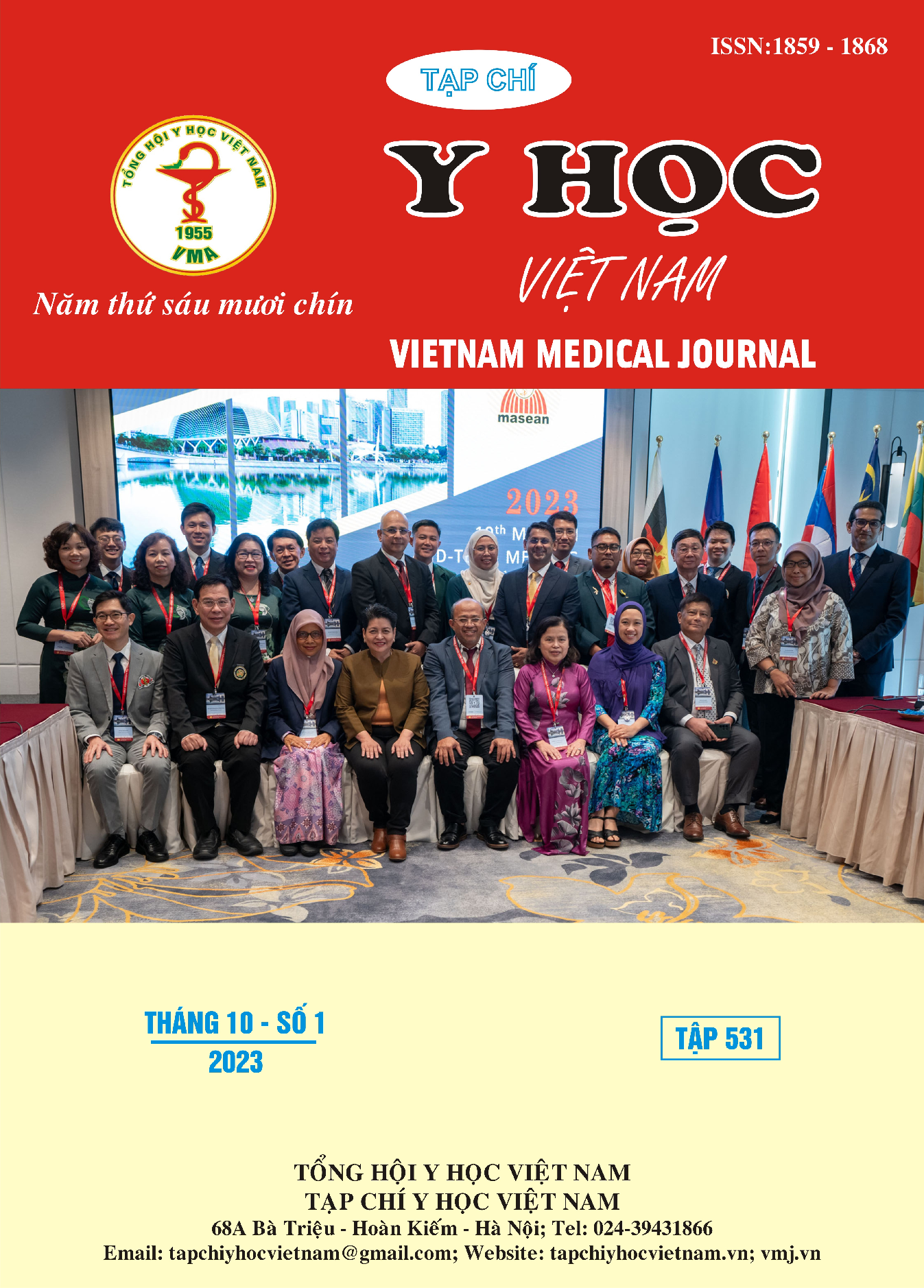INVESTIGATING THE MEDIAN VALUES OF BIOCHEMICAL MARKERS IN TRISOMY SYNDROME SCREENING TESTS UNDER DIFFERENT SAMPLE STORAGE TIMES AND TEMPERATURES
Main Article Content
Abstract
Objective: To compare the median values of biochemical markers in prenatal screening for Trisomy syndrome between samples preserved under strict storage conditions and samples randomly transported from different sample-sending units.Subjects and methods: A longitudinal study was conducted with 50 test samples from pregnant women who underwent Double test screening at Ho Chi Minh City University of Medicine and Pharmacy Hospital 2, along with data from 515 Double test results of pregnant women performed at the STO Phuong Dong Hospital in Ho Chi Minh City, Vietnam (in 2022) stored in the Prisca software. The concentrations of PAPP-A and free β-hCG were analyzed, comparing the median values by gestational week of the first trimester with sample storage times of 24, 48, 72, and 96 hours. A comparison was also made with 50 samples collected and tested immediately within 4, 48, and 72 hours. PAPP-A and free β-hCG were quantified using the CLIA method on the Immulite 2000 system. Statistical analysis was performed using SPSS.Results: There was no significant difference in the median value of PAPP-A between the preserved and strictly temperature-monitored sample group compared to the data group. The concentration of free β-hCG was significantly higher (49%) in the data group compared to the control group. The concentration of free β-hCG also increased when the sample was stored at room temperature for 48 hours. Conclusion: The median values of PAPP-A and free β-hCG remained stable up to 72 hours in the group with time and temperature monitoring. The concentration of free β-hCG was higher in the randomly transported sample group compared to the control group. Storing the test samples at a temperature above 20 degrees Celsius increased the concentration of free β-hCG at a 48-hour storage time.
Article Details
Keywords
PAPP-A median, free β-hCG median, sample preservation for PAPP-A and free β-hCG
References
2. Kirkegaard I. et al. Biology of pregnancy-associated plasma protein-A in relation to prenatal diagnostics: an overview. Acta Obstet Gynecol Scand. 2010; 89 (9): 1118-1125.
3. Văn Hy Triết, Phạm Thị Mai. Nghiên cứu ảnh hưởng của thời gian và nhiệt độ bảo quản bệnh phẩm trên xét nghiệm điịnh lượng PAPP-A VÀ βhCG tự do huyết thanh trong sàng lọc hội chứng Down. Tạp chí Y Học Thành phố Hồ Chí Minh. 2015; 5(19): 215-220.
4. Cruz J., Cruz, G., Minekawa R. Effect of temperature on free beta-human chorionic gonadotropin and pregnancy-associated plasma protein-A concentration. Ultrasound Obstet Gynecol. 2010; 36: 141-146.
5. Springer D., Zima T., Arnoštová L. Stability of Free β-hCG in the Routine Screening of Down Syndrome in the First Trimester of Pregnancy. Prague medical report. 2008; 109: 134-141.
6. Lambert-Messerlian G. M. E, E. E. Malone, G.E.C.F.D Palomaki at al. Stability of first- and second-trimester serum markers after storage and shipment. Prenat Diagn. 2006; 26 (1):17-21.
7. Nicholas J. Cowans, Anastasia Stamatopoulou, Johanna Hellström. Et al. PAPP-A and free ß-hCG stability in first trimester serum using PerkinElmer AutoDELFIA® and DELFIA® Xpress systems. Prenat Diagn. 2009; 30: 127–132.


